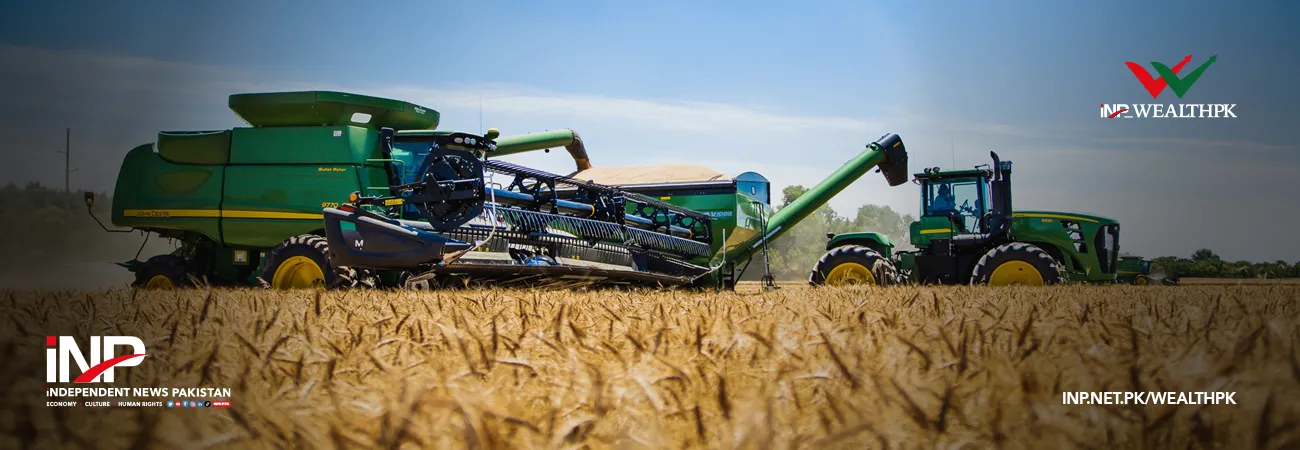INP-WealthPk
Arooj Zulfiqar
Pakistan can modernise its agriculture sector with robust Chinese technology to boost the national economy. "The cooperation between China and Pakistan can prove significant for the development of the latter's agriculture sector. Pakistan has enormous potential to access the huge agricultural market in China through the China-Pakistan Economic Corridor (CPEC)," says Dr Liaqat Ali Shah, Executive Director and Head of the Policy Division at CPEC Centre of Excellence. Talking to WealthPK, he said the agriculture sector used to play a crucial role in the country's economy through a variety of channels, but currently the sector is facing several challenges, including water shortage, climatic fluctuations, shortages of pesticides and unavailability of quality seed, poor infrastructure and lack of innovative research.
"Pakistan needs to adopt adequate agriculture methods to boost the sector. Agriculture productivity can be increased with the use of modern technology and improvement in the existing technology. We can integrate the growth of food crops and that of cash crops by adapting to local conditions, building on strengths and avoiding weaknesses," he explained. Liaqat Ali underscored that China's involvement could mark a new era in the agricultural modernisation. "China, renowned for its rapid technological advancements, has already extended cooperation to Pakistan to help it enhance agricultural capabilities. This strategic cooperation goes beyond bilateral ties, signalling a promising future for both nations as they share expertise and technology to address pressing agricultural challenges.
This partnership marks a significant stride towards increased efficiency, sustainability and resilience in the Pakistani agriculture sector." He maintained that the incorporation of advanced technology in the agricultural practices of Pakistan would have a significant and visible impact. "This will manifest in increased efficiency, productivity and economic growth. Farmers will have higher yields, improved livelihoods and reduced operational costs, heralding a new era of agricultural prosperity." In technology transfer cooperation, China has donated a maize cob picker to Pakistan, which can improve efficiency by 50%, as machines currently in vogue selectively pick corn grains, leading to wastage of crops. Due to this issue, farmers have to wait until the grains are fully dried, which makes them vulnerable to the risk of crop loss caused by heat waves or excessive rains resulting from unpredictable weather patterns.
The best thing about the newly-introduced machine is that it will help Pakistan meet the climate change challenge as it picks the whole cob rather than grains, allowing farmers to harvest their crops earlier than the scheduled time. It can both save the crop and facilitate their work. However, collaboration between China and Pakistan in modernising agriculture is not without challenges. Effective policy frameworks, infrastructure development and support for farmers to adopt these technologies are crucial. Moreover, ensuring the responsible and sustainable use of advanced technologies is essential for long-term success.
Credit: INP-WealthPk













